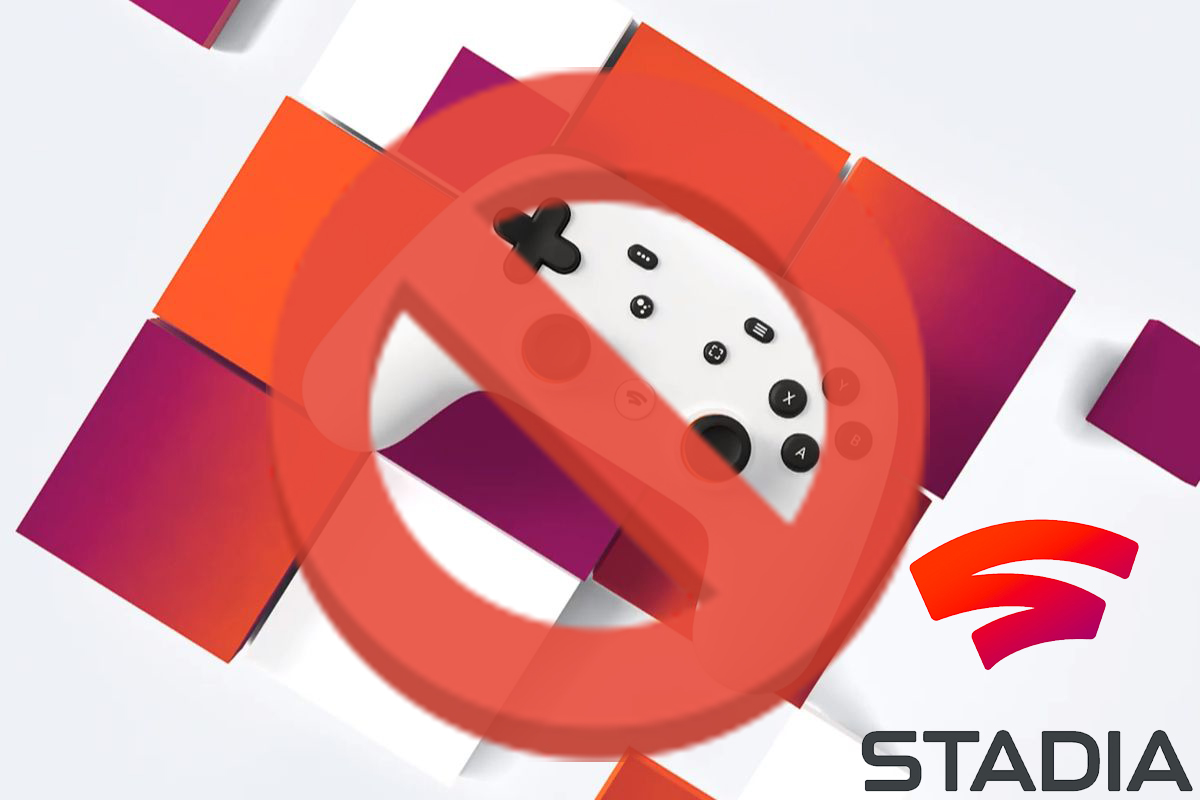You might have heard about Google’s announcement last week: Stadia. What it promises is without a doubt impressive. However, there’s a long way to go before we’ll be concerned about gamers turning away from full blown gaming PCs in favour of game streaming. In case you’ve missed it, here’s what it is in a nutshell.
What does Stadia promise?
- Almost any device with an internet connection can game
- While watching game footage, click a button to start playing the game and be gaming in about 5 seconds
- 4K (3840×2160, or 4x as much as 1080p) gaming at 60 frames per second (FPS) + HDR
- “State share” allows viewers of Stadia stream to launch to the same save state as the gamer
- Compatible with USB controllers, but Google will also provide their own controller with lower latency
- Subscription based service
- Potential to eventually support 8K gaming at 120 FPS
- Release in 2019
The above means for some very compelling positive points:
- Game practically anywhere, any time
- Launch a game without any downloads, installs, updates
- No specialised hardware necessary
So wait, why isn’t Evatech worried?
It’s no secret that we have made a business out of providing gaming PCs for gamers Australia wide. Google’s Stadia announcement may well eat into our customer base. But here’s why we’re not bothered…
The biggest reason
Google has only laid out plans for launching this year in the US, Canada, and Europe. Australians will have to wait.
Australian Internet
Remember that in Australia most of us struggle for good internet at home via wired solutions. The days of game streaming at 1080p 60FPS over a home ADSL/cable/NBN or a mobile data connection are far off in the future. More on why later in this post.
Furthermore, lately the trend of gamers going for resolutions greater than 1080p and/or more than 60FPS is skyrocketing. You might be thinking “But I can stream Netflix 1080p/4K no worries!” – firstly you’re in the minority. Secondly, almost all movie/TV footage is about 24 FPS. That’s less than half the amount of 60 FPS. Thirdly, streaming a movie or TV show is known data. By that I mean your device can pre-load the next 30 seconds, or few minutes of the video file so that in case your internet connection is patchy, it has a bit of a “buffer” to work with so that you hopefully experience a perfect stream.
A game on the other hand, cannot be pre-loaded. If you decide to jump, shoot, run, or (sadly) die from one second to the next, there are way too many possibilities for Google to pre-load for you, meaning it’s all live, all the time.
But, games on demand!
The games. Although it would be easier to say “the lack of games”, because all we’ve got confirmed so far is Assassin’s Creed Odyssey and Doom Eternal. Interestingly this raises another point. Since Stadia is based on Linux and some specialised hardware. Likening it more to a new breed of console than a regular home PC running Windows 10 and Steam (or whatever other game store). This may offer a new barrier to entry for game developers/publishers, meaning Stadia may not get all the latest and greatest games if there isn’t a large enough player base to warrant the hard work and effort.
What if it has everything I want, and I have great internet?
Input lag & latency
There’s a tiny (mostly negligible) amount of input lag on a gaming PC sat just 30cm away from you as you game. This is the delay between you pressing a button on your keyboard/mouse/controller and the corresponding action appearing on screen. Modern gaming peripherals and hardware do well to almost negate this entirely.
When it comes to pressing a button in your house, the signal going to your PC, your PC sending it to Google via whichever servers it needs to bounce off to reach Google, Stadia’s servers to process your button press and then pass the output (video) back to you again via the same avenues, there’s going to be a noticeable delay. Google says they have worked to minimise it, but those who have tested it are saying it is most certainly there, to the point of it being a deal-breaker. Note that a lot of gamers these days are playing first-person shooters, where reaction timing is everything. More input lag than your competition puts you at an instant up-front disadvantage. Playing games should be fun, not frustrating by design.
People are increasingly becoming wary of large corporations, such as Google & Facebook
There’s been what seems like news story after news story about the world’s largest companies engaging in shady activities. Some result in lawsuits, fines, and some just make people really uncomfortable due to their privacy being exploited. Stadia has raised some valid questions: what about game mods? How long are games available for (if not indefinite)? What if Google decides Stadia isn’t sustainable, and wants to shut down the service as it has with many, many other once-large services?
Internet (again)
It might be hard to think back to a time before the likes of Netflix, Stan, Amazon Prime, etc. Do you remember? Internet speeds for the most part slower than what we have right now, granted. But the max theoretical speeds were usually reached on a daily basis. Since the rise of streaming services like Netflix, Australian Internet Service Providers (ISPs) have struggled to give everyone their maximum connection speeds (sustained), especially during peak times.
Why? Most of the population get home from their day of school, university, or work from about 3pm to 7pm. As more and more people get home, they are able to give their attention to a screen of their choice, and the easiest one is a TV connected to the internet to watch some TV series, or perhaps a movie, or maybe even some YouTube. While that’s on, you might also browse through Facebook, news, or Reddit. That’s fine too – your internet can very likely handle this because the video content is being pre-loaded.
Now remember that this is happening at every other house in your street. The streets connecting your street to main roads. Every house in your suburb. Plus a few of your neighbouring suburbs. For some Australians, that’s the amount of houses that rely on just one internet node/exchange. Somewhere along the line, no matter how close to home, or how far from home, there will be a bottleneck. Too much data to go out and come back in to keep up with, so everyone’s speeds often get slowed down so that everyone is able to maintain some type of connection. This is what most ISPs now refer to as “evening speed”.
Why does any of the above matter?
That’s how life is in today’s world of streaming Netflix, YouTube, etc. Now picture that same scenario, only that maybe 1/4 of those people who would usually stream video are now interested in streaming live games that they are playing. So, 1/4 of the population using 2x (or more) the amount of bandwidth. That’s a significant increase in internet traffic and bandwidth utilisation. Something I just cannot fathom Australian internet infrastructure keeping up with. Let’s also remember Australian internet has pretty tight data caps. 1 hour of Netflix HD (1080p @ 25FPS) will use about 6GB of data. Let’s double that to get to 50 FPS (still 10 short of 60), and that’s 12GB of data an hour. 3 hours of gaming a day, 5 times a week, over the course of a month? 720GB in just game streaming.
Great idea, just… not for everyone
While it will allow people to jump right into games at the drop of a hat (ignoring the internet problem for a moment), it’s not the end of gaming PCs. Competitive gaming will still be done on real physical gaming machines. Ones that cater to professional gamers’ requirement for high refresh rate, low latency, “no excuses” hardware to play their games and earn their living. Anyone serious about gaming will likely stick with real hardware, like we have now.
For what it’s worth, American multinational retail company Walmart is also reportedly looking at game streaming. So there may be more options in the future, with all the same pitfalls we imagine.
Also remember. A gaming PC is more than just for playing games. You can do homework, assignments, research, video editing, office work, etc. Gaming PCs are far from being replaced.
Hopefully that explains things as we see it. And again, this is certainly not coming to Australia at least this year. Even when it does, Australian internet just isn’t cut out for it. So expect a very, very bad time.
Until then, game to your heart’s desire on an Evatech customisable Gaming PC!

